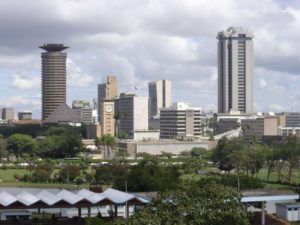
The report studies variables such as housing, transport, water and power, healthcare, education, public safety as well as factoring economic indicators like GDP, inequality, middle-class growth, ease of doing business and FDI inflow.
In the 2013/2014 financial year, FDI to Kenya was estimated to have surpassed Sh150 billion ($1.59 billion), owing to amplified confidence in the country’s investment climate, despite a heighten spat of terror attacks from al Shabaab, an Al Qaeda affiliated terror group. A number of lessons for other African states may lie within this success story, for which reason Ventures Africa has analyzed the key drivers of Nairobi’s accomplishment.
Rapidly developing infrastructure: Infrastructure plays a fundamental role in attractive a real investor. According to PwC, good infrastructure leads to even better cities as a strong correlation exists between infrastructure, human capital and economics, a situation that lures foreign investments. “As the accompanying graphic of infrastructure evolution illustrates, the developmental trajectory of successful cities from antiquity to the present has followed a certain course. Put schematically, it proceeds from infrastructure to human capital to, finally, a robust and self-perpetuating economy, some of whose profits finance urban life at its peak: from the arts and culture to environmental sustainability,” the report read.
As a country, Kenya has received substantial investment into its energy sector, maritime, aviation and rail. These have largely come from foreign capital championed by big time investors like China, Japan, Western Europe and the United States.
Leading the technology adoption train: The country is also an undeniable leader in technology adoption and advancement within the African continent. Its mobile banking platform (M-Pesa) is globally acclaimed to have deepened financial inclusion in the country and has now been adopted in parts of Europe and Asia. Nairobi also emerged the only African smart city among the list of top 20 smart cities globally.
The planned construction of the Konza technology city, a technology hub to be constructed as part of the nation’s Vision 2030, has also attracted the interest of key global tech giants including IBM (which set up the first African research lab in Nairobi last year), Google, Microsoft and Intel. Dubbed the African “Silicon Savannah,” the project is expected to be a key economic driver for the country in the coming years.
Read the full story at ventures-africa.com


